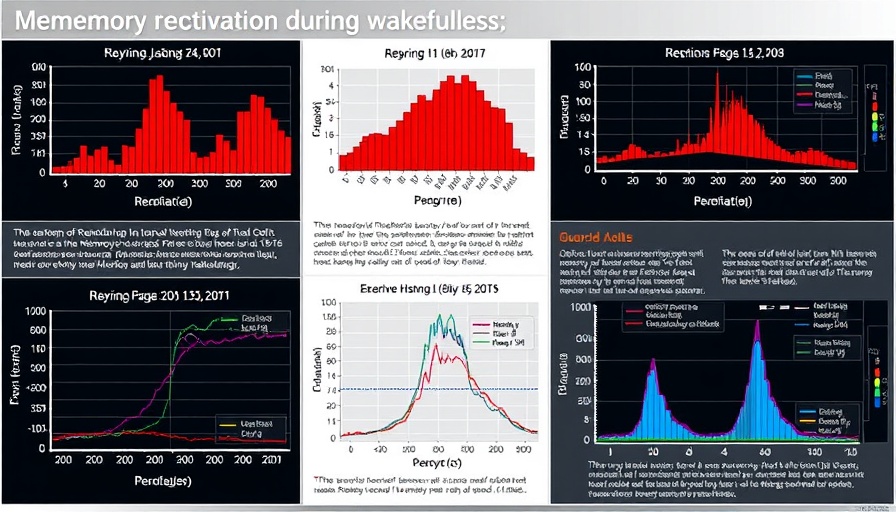
Unlocking Memory: The Science Behind Brain Reactivation
Recent research out of the University of Pennsylvania has turned the spotlight on a fascinating aspect of memory retention: the brain's ability to reactivate specific memories in short bursts during wakefulness. This study sheds light on how spontaneous memory reactivation can significantly enhance recall accuracy during tasks. Memory, a multifaceted phenomenon, often leads us to think that we can only consolidate it during periods of rest. However, this study uncovers that our brains may also work diligently to strengthen memory pathways while we are actively engaging in different tasks.
Understanding Memory Consolidation
Memory consolidation is a well-established concept in neuroscience, primarily studied in the context of sleep. It has long been thought that after encoding events or information, the brain undergoes a reactivation process during sleep that cements these memories for long-term storage. Yet, the new study suggests that similar processes might occur during our waking hours, especially in brief intervals between processing new stimuli.
Dr. David Halpern, the lead researcher, explains that understanding these reactivation processes is crucial for advancing our knowledge of memory. The study's experiments reveal that when participants were exposed to words or items they had recently engaged with, neural activity linked to those items would spontaneously reactivate, showcasing a dynamic interplay of memory encoding and recall.
Implications for Health and Wellness
This research bears significant implications for health and wellness fields, particularly concerning cognitive health over the lifespan. Improved memory recall is not just a matter of academic interest; it has real-world applications in numerous contexts, from education to professional settings. Understanding how we can enhance recall through timely reactivation strategies could lead to better methods for training, learning, and memory enhancement.
Furthermore, this aligns with broader trends in health and wellness emphasizing cognitive well-being. Community health centers, like those in San Antonio, focus on providing holistic approaches to enhance cognitive functions among residents, integrating practices such as memory training exercises, nutritional support, and mindfulness to foster better brain health.
Practical Techniques to Enhance Memory Recall
So, how can individuals leverage these findings in their daily lives? Here are some practical insights:
- Mindfulness and Focus: Engage in mindfulness activities that allow you to concentrate fully on learning new information without distractions.
- Spaced Repetition: Use spaced learning techniques to reinforce memory, ensuring that you revisit topics at intervals, allowing time for reactivation.
- Healthy Lifestyle Choices: Incorporate a balanced diet rich in omega-3 fatty acids, antioxidants, and vitamins that support brain health. These nutrients can further enhance cognitive function and memory retention.
Future of Memory Research: Opportunities for Innovation
This study opens the door to future innovations in cognitive therapies and memory enhancement techniques. It provides a foundation for developing educational programs that incorporate memory reactivation methods. Imagine learning environments tailored to optimize the timing and context of memory recall—this foresight could revolutionize how we approach learning, whether in classrooms or workplaces.
The intersection of neuroscience, technology, and education paves the way for tools that assist in memory training and cognitive health, making substantial strides toward optimal health and wellness.
Call to Action: Enhance Your Cognitive Health Today!
Understanding the new revelations about memory reactivation can help enhance your cognitive capabilities. Explore local health and wellness resources in your community that can assist in cognitive enhancement practices. Embrace techniques that promote better memory recall in your everyday life, and invest in your cognitive health today!
 Add Row
Add Row  Add
Add 




 Add Row
Add Row  Add
Add 


Write A Comment